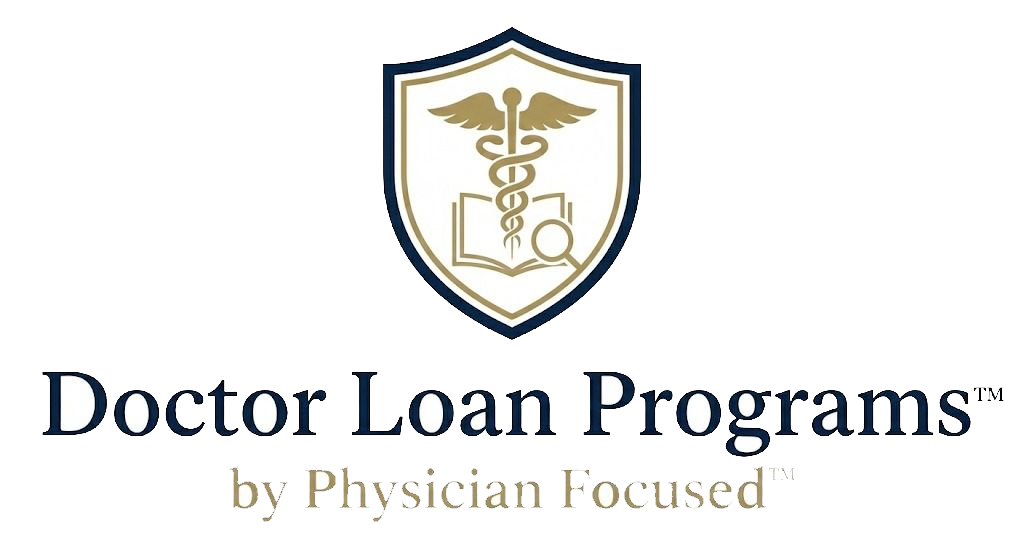Doctor loans are a specialized financing option designed to assist you in purchasing a home shortly after completing your residency. These loans cater specifically to medical professionals like you, often offering benefits such as lower down payments, flexible credit requirements, and the ability to exclude student loan debt when qualifying. By understanding how a doctor loan can streamline your home buying process, you can take advantage of opportunities to settle down sooner and invest in your future.
Understanding Doctor Loans
Definition and Features
Doctor loans, or physician mortgages, are specialized home loans designed for medical professionals such as doctors and dentists. These loans often come with unique features, including higher loan amounts, reduced down payment requirements, and flexible credit assessments. For example, many lenders allow you to borrow up to 100% of the home’s value, making it easier to purchase a home without needing to save for a traditional down payment.
Benefits Over Traditional Mortgages
One significant advantage of doctor loans is the favorable terms that can help simplify your home buying process. Unlike traditional mortgages that may require extensive documentation and significant down payments, doctor loans often accept student loan debt as non-existent for calculating your debt-to-income ratio. This means you can qualify for larger loan amounts, even in a competitive housing market.
In many cases, a doctor loan can eliminate or significantly reduce the need for private mortgage insurance (PMI), which adds to your monthly costs on a traditional loan. For instance, while PMI can cost anywhere from 0.5% to 2% of the loan amount annually, doctor loans typically do not require this expense, saving you hundreds of dollars each month. Additionally, these loans can often offer lower interest rates due to the perceived low risk of default among medical professionals, allowing you to secure a favorable financial position as you transition into homeownership.

Eligibility Criteria for Doctor Loans
Doctor loans are designed specifically for medical professionals, streamlining the home-buying process with flexible eligibility criteria. Generally, lenders require you to be a resident, fellow, or attending physician, with many considering future earnings as part of your financial profile. This means you can often qualify without traditional barriers such as established credit histories or large down payments, making it easier to transition into homeownership soon after residency.
Residency Considerations
If you’re in residency, lenders usually understand the unique challenges of your profession. Many doctor loan programs accept your current income or even future income projections, allowing you to secure financing despite being early in your career. This consideration often includes leniency around job stability and credit history, which means you can focus on finding the right home rather than stressing about your financial situation.
Financial Qualifications
Typically, financial qualifications for doctor loans differ from conventional mortgages, recognizing your potential as a high-earning professional. While income verification may include your residency salary and job offers, lenders often require minimal down payments, sometimes as low as 0% to 10%. You may also experience fewer limitations regarding debt-to-income ratios, making it easier to balance student loans with your mortgage obligations.
In practice, this means you could secure a loan with a relatively high debt-to-income ratio, considering both your current income and projected earnings post-residency. Many lenders will accept documentation like your residency contract, ensuring they recognize your future financial capabilities. This flexibility can significantly enhance your buying potential, allowing you to purchase a home sooner than you might with a standard loan, where stricter financial qualifications typically apply.
The Application Process
Navigating the application process for a doctor loan is straightforward, allowing you to secure financing efficiently. Begin by selecting a lender experienced with physician loans, as they understand your unique circumstances, including likely delays in income verification. You’ll fill out the application and provide necessary documentation as outlined below, ensuring you meet all lender requirements while streamlining your approval timeline.
Documentation Requirements
Your lender will require specific documentation to process your doctor loan application. Typically, you’ll need to present proof of residency or fellowship, along with your medical license, and recent pay stubs or employment contracts. Additionally, financial documents, including your credit report and tax returns, will help establish your overall financial health and repayment capability.
Steps to Secure Funding
Securing funding involves several key steps that you must follow diligently. Start by researching lenders who specialize in physician loans, then gather the required documentation. Once you submit your application, the lender will review your information, conduct a credit check, and may request further details. After approval, you’ll receive a loan estimate, which outlines the terms of your loan, allowing for informed comparisons before closing.
Once you’ve found the right lender, compile all necessary documents, ensuring they are current and accurate to avoid processing delays. After submitting your application, stay engaged; proactive communication with your lender can help clarify any uncertainties quickly. Following approval, carefully review the loan estimate detailing interest rates and fees before deciding. This diligence ensures you secure the best loan terms tailored to your financial situation and homebuying goals.
Choosing the Right Lender
Selecting the ideal lender is vital to securing favorable terms for your doctor loan. Consider lenders who specialize in healthcare professionals, as they often provide tailored solutions that meet your unique needs. Compare interest rates, fees, and loan features, and ensure the lender has a reputation for excellent customer service. Reading reviews and asking fellow colleagues can also guide you in making an informed decision.
Evaluating Loan Offers
When you receive loan offers, it’s crucial to carefully evaluate each one. Look beyond the interest rate, as fees, repayment terms, and lender reputation can significantly impact your overall cost. Create a spreadsheet to compare these factors side-by-side, helping you visualize the most advantageous terms for your financial situation.
Importance of Specialization in Doctor Loans
Choosing a lender with expertise in doctor loans can significantly enhance your borrowing experience. These lenders understand the nuances of your financial situation, including high student debt levels and varied income structures. They offer tailored products and benefits like deferred payments until your practice starts generating revenue.
Specialized lenders recognize that many physicians have unique financial trajectories, especially at the beginning of their careers. They may offer zero down payment options or higher debt-to-income ratios compared to traditional lenders, easing the pathway to homeownership. For example, some lenders extend approval to recent graduates with limited credit history or those still in residency, allowing you to secure a mortgage when conventional options may not suffice. Leveraging these specialized offerings can provide you with significant financial flexibility, enabling you to buy a home sooner and set roots in your chosen community.
Impact on Home Buying Timeline
Utilizing a doctor loan can significantly shorten your home buying timeline after residency. Traditional lenders often impose strict income requirements and lengthy waiting periods, but doctor loans cater specifically to your unique financial situation. This allows you to leap the hurdles of high debt-to-income ratios and lack of established credit history, enabling you to close on your new home sooner and start building equity as you settle into your career.
Accelerated Purchase Opportunities
With a doctor loan, you can seize accelerated purchase opportunities that may otherwise be out of reach. The favorable terms and minimal down payments allow you to act quickly in a competitive housing market. For instance, while traditional buyers might wait years to gather a substantial down payment, you can enter the real estate market shortly after completing your residency, capitalizing on favorable interest rates and property values.
Case Studies and Examples
Examining real-world cases illustrates how doctor loans expedite the home buying process. For example, a recent graduate in a high-demand medical field secured a loan allowing for a 0% down payment, closing on a $500,000 home just one month after residency. Potential buyers often underestimate the benefits available through these tailored loan products.
- Case Study 1: A physician bought a $700,000 home with a doctor loan covering 95% of the purchase price, only needing $35,000 cash for closing costs.
- Case Study 2: A couple recently out of residency leveraged a 3.5% interest rate to buy a $450,000 house, significantly lessening monthly payments compared to conventional loans.
- Case Study 3: An emergency medicine doctor closed on a luxury condo at $600,000 using a doctor loan, allowing withdrawal from savings without depleting reserves for emergencies.
These case studies highlight the tangible benefits of doctor loans, showcasing how medical professionals can secure homes without the conventional constraints placed on new graduates. Particularly, their ability to overcome high entry costs and secure attractive financing can change the trajectory of their financial futures significantly.
Tips for Managing Finances Post-Loan
Effective financial management after securing a doctor loan is vital to ensuring long-term success and stability. You should prioritize creating a budget that accommodates your new mortgage while managing other debts and expenses. Regularly reviewing your financial situation can help you stay on track and adjust as necessary.
- Establish a realistic monthly budget
- Track all expenses diligently
- Prioritize saving for an emergency fund
- Avoid unnecessary debt accumulation
- Consider consulting a financial advisor for tailored advice
After creating your budget, you’ll find it easier to allocate funds towards your mortgage, savings, and everyday living expenses.
Budgeting for Homeownership
Budgeting for homeownership requires a comprehensive understanding of your income and expenditures. Start by calculating your monthly mortgage payment, property taxes, and homeowners insurance. Next, factor in variable costs such as maintenance, utilities, and association fees. Establish a surplus for unexpected expenses, ensuring your budget remains flexible. Staying disciplined with your finances will enable you to manage your new responsibilities effectively.
Strategies for Repayment
Implementing effective repayment strategies can substantially reduce your overall loan burden and interest costs. Consider making extra payments when possible or rounding up your monthly payment to the nearest hundred. Refinance options may be viable as your financial situation improves, potentially lowering your interest rate. Setting aside raises or bonuses exclusively for loan repayment can accelerate your journey toward financial freedom.
As you explore repayment strategies, focus on creating a plan that aligns with your financial goals. For instance, establish a schedule that allows for occasional lump-sum payments when your income fluctuates. You could also investigate biweekly repayment options that effectively reduce the principal faster. Engage with your lender to discuss potential avenues for refinancing or consolidating multiple loan obligations into one manageable payment. This proactive approach facilitates better cash flow and maximizes your financial health.
Final Words
Drawing together the benefits of a doctor loan, you can secure favorable terms and lower down payments tailored for your unique financial situation. This specialized financing allows you to transition into homeownership sooner, bypassing common barriers faced by recent graduates. With flexible eligibility requirements and competitive interest rates, you can invest in your future residence without the hefty burdens of traditional loans. By leveraging a doctor loan, you position yourself to enjoy the comforts of homeownership more swiftly after residency, allowing you to focus on your career and life beyond medical training.




